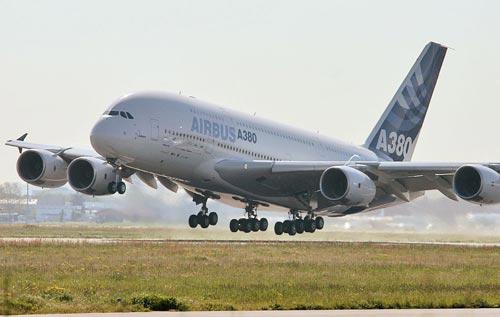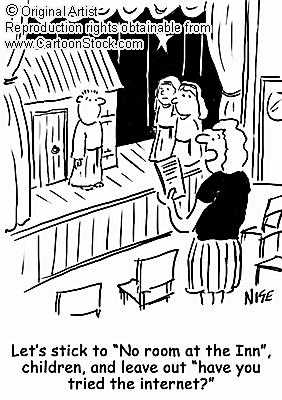Courses/Computer Science/CPSC 203/CPSC 203 2007Fall L04/CPSC 203 2007Fall L04 TermProjects/Travel at the Click of Your Mouse
Contents
Group
Group Name
The Mile High Club
Group Members
Spencer Buckoll, Lei Ba, Sarah Dang.
Background
Technology
Online travel reservation and booking sites.
Issue
We'd like to examine the conveniences of using online travel sites to book hotels, car rentals, flights and various vacation packages. As well as the downsides of using the internet to book travel plans.
Initial Project Statement
For the purpose of our project, our group will be examining how internet booking technologies emerged, and how customer confidence in these sites was earned, as well as some of the important contributors to this technology. In addition we would also like to examine how online booking systems work. As well as research into some of the common problems travellers have encountered when using these sites to book travel arrangements, and some possible solutions.
Argument
The convenience of the web to book travel arrangements has lead to a sharp increase in the number of users of this emerging technology. But how do online database's such as expedia and travelocity work? What problems can customers encounter when using this technology? And what are some ways these can be avoided?
Introduction
History
Here is a brief outline of the highlights leading to the full-blown market of Online Travel:
1996
- The internet is a fairly new concept to the commercial world, and many technology companies eagerly climb aboard to attempt to launch the world of online travel.
- The notion of self-booking travel arrangements online is fairly new and many are skeptical about the security and reliability behind making such reservations on the web.
- Several companies invest in launching an online travel website, with the option to book for small vacations such as ski trips and domestic getaways.
- With regards to the corporate world, fewer than 5% of business travelers are given the opportunity to book their own travel arrangements. Travel managers’ show little interest in implementing such a tool.
1997
- Making bookings in realtime is not commonly available yet, and most sites only have the capability of advertising the package, allowing the customer to correspond with the travel supplier through email with regards to availability.
- Large airline and hotel companies begin to promote special bargains online, as well as displaying product description, prices, and dates.
1998
- A credit card company survey shows that 65% of consumers do not trust internet shopping. It is crucial for credit card companies to come up with a secure booking system for shoppers to be able to depend on for their online shopping needs. This technology is promised by Visa and Mastercard to be available later in the year, and if successful, it will greatly boost the online travel industry.
2000
- With the turn of the new millenium, investors get hesitant about putting money into stocks that do not look as promising as originally anticipated. Stock prices begin to fall as stockholders begin to sell their shares.
- This leaves many major travel sites hanging by a thread to survive as investment capital continues to dwindle.
2001
- The abundance of travel websites is apparent. One could search up almost any vacation or travel arrangement and find at least dozens of possibilities and price ranges. Consumers start to respond more enthusiastically to buying services online.
2002
- Because of lack of funds that many website companies faced, mergers and acquisitions were especially prominent this year. Numerous smaller websites were bought out by larger ones such as LastMinute.com, and several companies merged to form larger ones.
2003
- An online survey shows that 41% of consumers prefer non-packaged holidays, rather they want to arrange their own vacations.
- The Office of Fair Trading initiates an investigation after finding that about 40% of online agents make potentitally misleading claims.
- There is a call for a level playing field among the website companies and for websites to be policed.
2005
- Worldwide, travel-related spending is responsible for about one-third of all web expenditures and this fraction is only expected to increase over time with innovations and growing trends in online purchases of goods and services.
Influential People
- Simon Breakwell: Expedia
Breakwell had a vision to make Expedia far more than it was intended to be, including expanding in the European market. One of his major contributions lie in convincing airlines and hoteliers of the site’s future, and in doing this, he was able to negotiate prices that were good enough to attract customers to their business.
- Sergey Brin, Larry Page: Google
Though the relativity of the founders of this mega-search engine site to the topic of online travel may seem far-fetched, it is largely due to search sites such as Google that allow consumers to locate travel websites and have the opportunity to compare packages, availability and prices of various travel sites. It has also resulted in a competitive race between major online travel companies to be the most viewed/clicked site in order to appear as high as possible in search results.
- Tony Cheng, Jim Donnelly: IgoUgo
Cheng and Donnelly are widely acknowledged with coming up with a whole new concept for a website – an online community of traveler’s reviews. This site contains mainly user generated content that allows users to give their feedback on their latest online travel experience. Visitors to the site can then evaluate the travel sites for themselves based on the opinions posted on that site. It is a very good way to keep travel sites accountable, as well as to warn the consumers of any possible scams or other problems.
- Brent Hoberman, Martha Lane-Fox: LastMinute.com
This travel site was launched by Hoberman and Lane-Fox in 1998 as an alternative distribution mechanism to travel agencies and call centres. What really sets it apart from the norm is its campaign to encourage consumers to book their travel packages at last minute in order to get the best deals instead of the traditional early reservations. In order to accommodate this, they were able to convince airlines and hotels to offer them the best prices, promising them that this site would launch, and they delivered true to their word. LastMinute.com is one of the top travel websites used by holidaymakers.
- Steve Kaufer, Langley Steinert: TripAdvisor
Their concept for a user-generated feedback system was not the only driving factor behind the reason why they are so popular today. Kaufer and Steinart’s success is a result of catching the attention of those skeptical about the reliability of advertisements by hotels and other travel sites. By creating their website, they are offering a medium for consumers to advise and warn each other of the precautions that should be taken when it comes to booking travel arrangements online.
How It Works
- Overview of Online booking
Travel is a tool which connecting with new people, learning about new cultures and more generally being nice to your common brothers and sisters. This is why the social travel websites do so well. Sharing experiences through photo and video sites, staying connected with the people you meet using social networking, and to help others out through reviews and travel tips.
- How does it work
Online booking is a quite convenient way which the customers can purchase the goods and also get the best services without going to the stores. Online booking also provides a lot of specials for the customers, such as buy one get another one for free, purchases $50 get one free membership card, and get 60% off if buying the air tickets right now. Usually, the travel companies will give online booking software to help the customers with their requests. The customers just need to fill out some simple questions and then submit them to the service stop. A few seconds later, the customers will see many choices will be listed on the screen. After making the decision, customers can use credit card or electronic debit transfer to pay for the good which they satisfied. At the same time, online services will keep the customers' personal information as safety as possible.
- The influence for people
A report shows that in UK, 78% of people will search information about their holiday online while 63% will book part of their main holiday online, according to the Holiday Online Planning Report released by market research company Continental Research in 2007.
- The online booking software
1. Easy-to-use booking software
Enter your room types, rates and availability with the nightsbridge software on your own computer. Synchronise with the central computer at the press of a button. Update the room availability when you take bookings personally.
2. Update availability in one place...
Your room availability is stored on the nightsbridge central computer. From here, it can be queried on any sites you designate. We will only share the information with your chosen sites.
3. ...but view on many sites.
From the nightsbridge computer, the room information is available on your own website, as well as other travel sites or accommodation listings you already advertise with and nightsbridge partners with. You choose which sites display your check availability link.
COMMUNICATION
Guests check, book and pay online
Potential guests searching for accommodation online can check your room availability for the dates they require, book and provide their credit card details so that you can deduct a deposit (or we can do it for you). Guests can book confidently, because the information is up-to-the-second — realtime — and the transaction is secure.
Automatic updates of inventory
Online bookings automatically update the room availability on your central calendar. The next person checking your availability will need to select a different room or date, as the booked one is now unavailable.
We notify you of online bookings.
You receive an email with all the details, as well as a detailed sms to your cellphone to notify you of an online booking. You then synchronise to view the booking details on your computer.
You tell us of bookings you take.
If you take a booking via phone or email, all you have to do is enter the booking in the nightsbridge calendar on your computer and then press update. The information will be instantly reflected to all your chosen websites.
Or, you can use the nightsbridge application on your cellphone. Quick and easy. This is also convenient for checking your room availability when you are out and about.
Problems & Solutions
Problems
Online travel booking agencies have given consumers a convenient, efficient way to shop online and compare prices. But with thousands of requests and reservations running through these websites online databases daily, errors are bound to happen. There's been questions raised over concerns about the safety and privacy of consumers online, as well as the reliability of some of these booking sites. This has led some consumers to opt out of using online booking agencies, instead many are turning to other more personal means to book their travel plans offline. Listed below are some of the common problems consumers have encountered:
- Credit Card Fraud
With most online booking sites use credit card as their primary mode of payment, many consumers are becoming increasingly wary of giving out personal information to third parties online for fear of identity theft, and are therefore opting out of using these sites. Instead, many consumers are shopping around and comparing prices online, and using more personal means to book thier travel arrangements, such as over the phone or at a travel agency. Although improvements in online security have been and continue to be made, credit card fraud alone was cited by 16% of respondents as to why they book their travel plans offline, in Forrester Research's 2005 poll, which then doubled to 32% in the 2006 poll.
- Limited Capabilities Of Online Reservation Systems
Consumers wishing to customize their reservations many times find themselves out of luck when booking online. Savvy travellers often have difficulty when trying to make specific requests about their booking, such as getting a specific hotel room, renting a certain vehicle make/model, or specifying seating preferences. The inability to make special requests was cited by 25% of people as to why they choose to book offline in Forrester Research's 2006 poll.
- Performance Problems
Many users report having technical difficilties when using travel booking sites, such as: lengthy wait times, pages unable to be displayed, and payment information unable to be processed. This reason was cited by 1 in 5 respondents in Forrester Research's 2006 poll as to why they chose to book thier travel offline. Server errors or technical issues have led to complaints about incorrect bookings, multiple bookings, and pricing errors with the the online travel agencies such as Hotwire, leading some customers to take legal action. [1]
- Lost Records
Lost records can be decieving, and be the cause of any travellers worst nightmare. With online booking agencies processing thousands of requests, and payment information every day lost or incomplete data is inevitable. The most frequent problem encountered is consumers booking requests not getting through to the various corporate databases which the third party booking agency sells services for. Customers may recieve e-mail or other means of booking confirmation and have their credit card charged by the booking agency when niether the airline nor hotel has recieved records of their reservation form the online booking agency. Travellers often show up for their flight or to their hotel only to find that the airline or hotel has no record of their reservation. And since the reservations were not made directly through the individual companies, they cannot be held responsile for the mix up.
- Price Changes
The various services sold by online travel booking agencies are subject to price changes by the different airlines/hotels they represent. A common problem occurs when the online travel agency database has not been updated to the the current price that the airline or hotel is charging when consumers are booking their travel plans. Many times discounts or seat sales offered are only temporary sales, and online booking agencies do not have the manpower to keep every flight or accommodation price updated to the second. Most online booking agencies do not offer compensation when this happens, many times leaving the consumer to pay the difference.
- Poor Quality
Many consumers are being misled with elaborate photos or rating systems which don't necessarily tell the truth about the hotel they are booking. Unexpected travellers don't realize the imlications until they show up at the hotel they have booked only to find substandard accommodations, and sadly the booking agency has no obligation to compensate you.
- Customer Service
Many consumers are finding they are being left helpless when it comes to getting ahold of customer service agents, and getting the information they need. Consumers are often being left on hold for hours, not having their e-mail requests responded to promptly, and when finally getting through to a customer sevice rep finding they are not getting the information they need. Booking agencies are under no legal obligation to make their staff accessible.
Solutions
- Be sure to read up on the booking agencies privacy policy, in other words make sure you know what your personal information is being used for, and who will have access to it. Furthermore, make sure you know your rights as a consumer, don't provide information you feel is irrelevant to the task at hand. Be sure you know who your paying? Who will be charging your credit card? And how your credit card information will be processed? (i.e. will the online booking agency charge you then supply the airline and hotel with the payment, or will the online booking agency relay your credit card information onto the third parties for payment?)
- Keep a record of all your transactions.
- Since most companies offer a full refund for reservations that were paid for but never actually made, it's important to be go-getting when lost records appear to be the problem. Some companies require customers to contact the booking agency within 24 hours so it's important to act promptly and report the problem immediatly.
- Since many online booking agencies set midnight as there cutoff time for refunds, be sure to make cancellations if need be prior to this time, and don't make cancellations just prior to the deadline, as you must allow time for processing. For further information, check the cancellation policy of the online booking agency.
- Make sure the booking agency offers a 100% lowest price gaurantee available. So long as this is the case, the booking agency and not the customer will be left to pay the difference should price changes occurr.
- Check the companies cancellation and refund policy. If your booking was paid for on a credit card, many times the credit card company will negotiate on your behalf. Travel insurance may be a good idea at the time of purchase, because if all else fails travel insurance may recover some of the losses.
- When picking accomodations, don't necessarily rely on photos or ratings on the booking sites to base your decision on. Try and find some customer reviews on the hotel your looking to book, and should you be booked into substandard accomodations, make sure to speak with the hotel manager immediatly.
- Check the booking agencies customer service policy. Just becuase the company states it will respond to customers ASAP, doesn't mean they will respond promtly, and could sometimes take weeks. If you get through to a customer service rep and are not getting the information you need, ask to speak to the persons supervisor. Also be sure to save copies of emails or letter you sent the booking agency.
- Read the fine print carefully. Read the terms and conditions of the online booking agency, and know what the responsibilities of the online travel agency and/or tour operator are.
Conclusion
In summary to what was said above, we believe that the internet can be a valuable tool when used to book travel online. Online booking can be a convenient way for consumers to shop around, compare prices and book flights, hotels and vehicle rentals. E-commerce is becoming an increasingly viable solution for customers, at the click of a mouse customers can purchase tickets, recieve a travel intenerary with a check in code, which can then be used to choose the desired seating preference, and the number of bags to be checked from anywhere in the world. Once at the airport, all that is left to be done is drop of your luggage and head to your gate. Furthered enhancements in online software programs, such as nightsbridge, pertaining to online travel booking now allow customers to customize their travel arrangements, then submit it to the individual corporate databases for processing. However, online booking can present some problems for would be travellers. Problems with security and privacy on the internet have led to increasing concerns over credit card fraud and identity theft. Technical problems with booking agencies databases or servers have led to some consumers losing their reservations when they were actually charges for the service. And misleading descriptions of hotels have led many customers to be booked into inadequate accomodations. When using the net to book your travel, there's often more than meets the eye. Be sure to do your research on the internet booking sites before you decide to make your purchase. Check up on the companies privacy policy, see what the restrictions are on cancellations and refunds, read customer reviews on the accomodations you are looking at instead of relying on the photos, and most importantly read the fine print!
References
Spencer
- http://www.happynews.com/living/money/consumer-rights-dealing.htm
- http://www.networkworld.com/news/2007/031907-consumers-dont-book-travel-online.html
- http://c1dsp.westjet.com/guest/techquestionsTemplate.jsp;jsessionid=vGKJGYvfTjsWxLjBNpvn8kwSvTWH8yZKL1hkCCdhvZYmhr7427tx!6125518
- http://www.miamiherald.com/living/travel/story/290769.html
- http://www.msnbc.msn.com/id/12579823/
- http://www.tico.on.ca/downloadables/pamphlets/Consumer%20Tips-onlinepurchasing.2007.pdf
- http://ezinearticles.com/?Skybus-and-Online-Booking-of-Flights&id=560933
- http://www.24-7pressrelease.com/view_press_release.php?rID=7877
- http://www.travel-wise.com/travel-insurance/
- http://travel2.nytimes.com/2005/12/18/travel/18prac.html
Lei
- http://www.nightsbridge.co.za/HowItWorks.html
- http://www.netholidays.ca/faqs.php
- http://blog.youngineurope.com/2007/05/why_does_travel.html
- http://www.milford.co.uk/booknow-service.html
- http://sramanamitra.com/2007/04/23/travel-web-30-overview/
- http://www.travelwebworks.com/
- http://www.dancewithshadows.com/travel/online-travel.asp
- http://www.eyefortravel.com/research/research-and-reports.aspx
- http://www.illustratorworld.com/artwork/1779/
- http://www.frommers.com/
Sarah
- http://www.travolution.co.uk/Articles/2006/09/22/494/Ten+Years+of+Online+Travel+-+Timeline.html
- http://www.phocuswright.com/library/fyi/405
- http://www.canadianbusiness.com/my_money/spending/article.jsp?content=20050418_094956_5952&page=2
- http://www.cnn.com/2007/TRAVEL/traveltips/10/03/travel.sites/index.html
- http://findarticles.com/p/articles/mi_m0DTI/is_1_32/ai_112166713
- http://proquest.umi.com.ezproxy.lib.ucalgary.ca/pqdweb?index=6&did=1381133711&SrchMode=1&sid=1&Fmt=3&VInst=PROD&VType=PQD&RQT=309&VName=PQD&TS=1195106108&clientId=12303
- http://www.articlebeach.com/article69637.html
- http://tourismtechnology.rezgo.com/2007/10/bringing-sustainability-in-travel-to.html
- http://www.luggageonline.com/50-travel-sites.cfm




